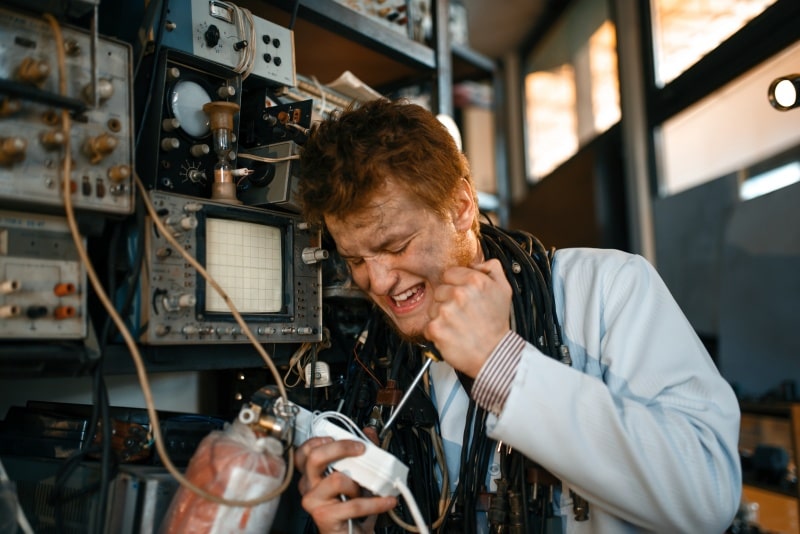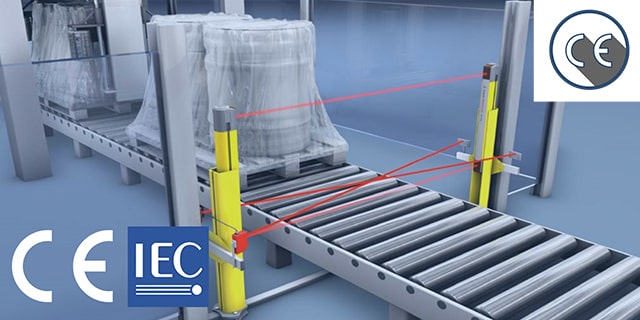Safety is always our number one priority. Electrical safety is therefore also critical when working with electricity. With proper safety measures, you can prevent personal injury, fire and equipment damage. Contact with electricity can cause it to flow through the human body and cause unwanted damage. Therefore, we believe it is important to have the right knowledge, skills and equipment before you begin the work. Proper application of safety measures, such as wearing protective clothing and following safety regulations, should always be a priority. This can ensure that all electrical work is done safely and efficiently without negative consequences.
Table of Contents
The basics of electricity
Electricity is essential in our daily lives and is used for lighting, heating, appliances, machinery and much more. Electric power is produced in power plants. It is then transmitted through the power grid to homes and businesses. Electricity can be transmitted via cables or wirelessly via electromagnetic waves. Safety precautions must be taken when using electricity to prevent injury or damage.
Electricity exists in several forms, including alternating current (AC), direct current (DC) and static electricity. AC is typically used for long-distance, home and business applications, while DC is common in batteries and solar panels. Static electricity is caused by accumulation of charge on materials such as plastics and textiles. It is important to have enough knowledge about the different types of electricity so that you can handle them safely.
OPEN CALCULATION
OFFER IN 5 DAYS
SUSTAINABLE INNOVATIONS
UL/CSA
AT HOME
Safety when working with electricity
General safety tips
It is essential to take safety precautions when working with electricity to reduce the risk of accidents. The most common tips include wearing proper protective clothing, turning off the power supply, handling insulated tools, avoiding damp areas and having the proper knowledge and skills. If more help is needed, we recommend approaching a gepspecialized company. Following these general safety tips can reduce hazards associated with electrical work.
How can you prevent electric shock?
Electric shock is one of the biggest dangers when working with electricity. To reduce risk, turn off power before working on any electrical device or system. It is important to use insulated tools and make sure your hands are dry before you start working. Avoid touching equipment and direct contact with wires. In addition, always wear rubber gloves and shoes with insulating soles. Follow the safety instructions and manuals and never experiment if you are unsure of the electrical system. Working safely helps significantly reduce the risk of electrical shock.
Contact our experienced innovator
Cees Brasser
With more than 26 years of experience at the helm of Gerbin Control, Cees Brasser is your expert on panel construction for the machinery sector. Discover how his knowledge and insight can take your project to new heights. Get in touch now!
Protective measures
The protective measures for working with electricity
Electrical protection measures are those taken to protect workers from electrocution and other hazards associated with working with electricity. Improper use of tools can cause potential danger even at low current levels. To ensure the safety of workers, various electrical protection measures can be taken. Below we have listed the most important ones for you.
- Wear personal protective equipment: Gerbin Control recommends wearing protective clothing, gloves and shoes against electric shock at all times.
- Insulate equipment: insulating material can be used to provide good shielding protection for electrical equipment. This avoids power leakage and reduces the risk of electrocution to workers.
- Ensure proper grounding: Proper safety grounding of electrical equipment and systems ensures that any leakage currents are safely diverted to earth. This measure avoids contact between electricity and personnel.
- Maintain adequate distance: Access to electrical equipment should be restricted and workers should maintain a safe distance from active electrical equipment for safety.
Electrical safety measures are necessary to protect workers from the potential hazards of electricity, such as serious injuries and even cardiac arrest resulting. These measures are important for employers, who want to ensure the safety of their workers and prevent accidents.
Power grid protection measures
Safety is essential when using electricity. The ground fault circuit interrupter is often used as a protective measure. This switch detects power leakage and immediately turns off power to protect the user/employee. Other measures include current protection relays, overvoltage protectors and differential switches that protect against overloads, short circuits and damage caused by excessive voltage. For the sake of everyone’s safety, the proper protective measures must be chosen, properly installed and properly used. Gerbin Control can help you draw up a plan of action to work with electronic installations in a correct and, above all, safe manner.
How can you monitor and maintain protective measures?
Maintenance of electrical protective devices is crucial to ensuring the safety of workers who work with electricity. Regular inspections are necessary to check all electrical equipment and protective devices for signs of wear, damage or other defects. It is important to perform maintenance according to the manufacturer’s instructions and relevant regulations, including replacing damaged insulation material, testing ground fault circuit breakers and updating safety procedures. Routine maintenance and inspection plans can keep workers safe while reducing the risk of accidents or malfunctions. Contact Gerbin Control today to ensure the safety of your business and reduce the risk of electrocution.
How can you properly connect and operate systems?
Connection and operation of electrical systems should always be done according to the manufacturer’s instructions. This includes reading the manual, using proper tools and testing before maintenance. In addition, relevant safety procedures and regulations must be followed, such as the use of protective equipment, maintaining a minimum distance from the equipment and turning off power when necessary. Following these steps ensures safe working with electricity and reduces risks such as electrocution.
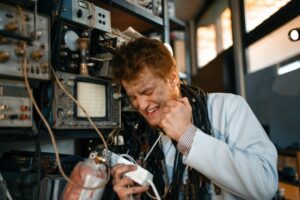
Your electrical engineering ambitions, our mission
Our expert team at Gerbin Control is ready to turn your electrical issues into concrete solutions. Are you ready for the next step?
Our recommendation to work safely with electricity
Working safely with electricity is paramount to reducing the risk of accidents and injuries. Therefore, as an employer, it is essential to always take proper precautions when your employees are working with electrical equipment. We can’t mention it often enough, but always make sure you use the proper personal protective equipment and have the necessary tools on hand to get the job done safely and efficiently. It is also important to follow the manufacturer’s instructions and applicable laws and regulations. In addition, it is advisable to receive regular training and stay up-to-date on the latest technologies and methods for working safely with electricity. Following these guidelines and taking proper precautions can significantly reduce the risk of accidents and injuries. Thus, as an employer, you create a safe working environment for everyone.
Related Articles
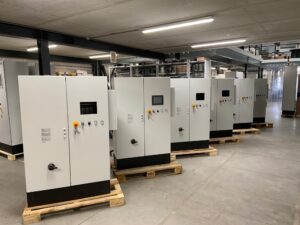
What trends in panel building can we expect for 2024?
The world of panel building is one of constant evolution and innovation. As technology advances, market expectations are increasing. But what trends in panel construction can we expect for 2024? At Gerbin control, an industry leader in producing high-quality electrical panels, we took a look at what the future holds for us.

The role of reuse in panel building within the circular economy
When building modern infrastructures and systems within industry, panel construction plays a crucial role. But have you ever wondered how panel construction can contribute to
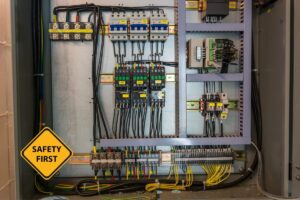
The importance of certified panels for safety and quality
In an era where technology and innovation go hand in hand, Gerbin Control has established itself as a leading panel builder. Safety and quality are
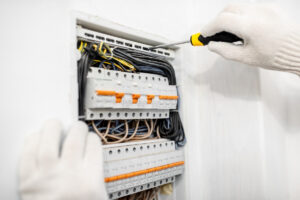
Are energy-efficient panel systems the key to a better planet?
In a world where sustainability is no longer a luxury but a necessity, we are constantly looking for ways to reduce our carbon footprint. One
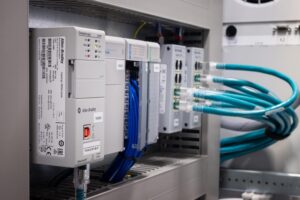
The best choice of materials for durable panel construction
If there is one thing we are passionate about at Gerbin Control, it is the innovation and quality that goes hand in hand with sustainable panel construction. When choosing the best materials for panels, there are several factors to consider. In this article, we dive deeper into those choices, drawing on our years of experience in the industry.

How panel systems are the bridge to the Internet of things
At Gebin Control, we recognize the revolutionary power of panel systems and their integration into the emerging world of the Internet of Things (IoT). In

